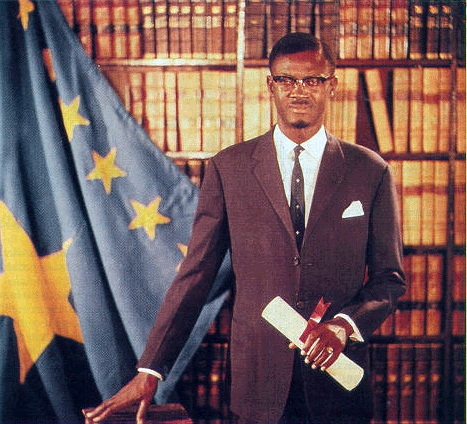Independence in Congo

Prime Minister Patrice Lumumba. (Public Domain photo. Info can be found here)
Of all the countries in Africa that had a reason to want independence from their European counterpart, the people of the Congo had the best reason to want independence. The Belgians under Leopold had created one of the world’s worst genocides when they started this colony, killing upwards of 10 million people (depending on which statistic you agree with). For this reason, this was not the first time they had tried to push for independence. This time the country would get caught up in the Cold War issues on top of their own needs for independence. The Belgian government realized that with all of the movements happening around Africa it was unlikely that they were going to be able to keep this colony so they created a ‘30 year plan’ for independence of the Congo (1955). The plan may have sounded nice, albeit a bit too far out, but the Belgians were never serious about implementing this. They simply used it as a tool to calm down the people who might rebel against them. Not everyone was convinced the Belgians were telling the truth, so a few independence groups were made like the Association des Bakongo (ABAKO) which was led by Joseph Kasavubu.
The turning point towards independence was when the country dealt with the Leopoldville Riots (1959). This started as a simple protest against the Belgian rule and quickly turned violent. About 49 people were killed in this protest and a handful of leaders, like Joseph Kasavubu. The Belgians would
again promise independence to calm down the people but this was a trick try to isolate the radicals from the rest of the population. They Belgian government would even have a meeting called the Roundtable Conference in Brussels (1960) to discuss independence with a few of the rebels, but they had no real interest in making any changes.
Eventually the Belgium (Baudouin I) would give in and decide to give independence for Congo. He would create a big ceremony and speak to the people during this changeover, but the people of Congo that were there either ignored him completely or openly mocked him while he was speaking. The people had plenty of reason to do this, but when he spoke positively about his uncle Leopold II, who had been the leader of the genocide, this was too much for the people in attendance. After this was over, the new Prime Minister Patrice Lumumba gave a passionate speech that focused on the horrible history of oppression that had been the main cause of the movement, and even may have said “we are no longer your monkeys” while looking at the King. The speech was so rough that the King of Belgium nearly left in the middle of it. Afterward Lumumba became the leader of choice for those who still really resented the Belgians as well as those who advocated Pan-African movements which he had been an early leader of.
The people of Congo would create a republic as their new government with Kasavubu as the president and Lumumba as the Prime Minister, but they lacked a lot of the power that would be needed to keep the country moving smoothly. One of the biggest issues was that the army lacked the money and leadership necessary to keep things from getting worse. To rectify this the Belgians would have some officers stay so that they could train the new officers, but no one wanted to have the Belgians there, even if they were trying to help. At the same time PM Lumumba was causing issues within the military because he raised the pay of all government employees except the military, causing obvious frustration among the people. All of these issues caused the military to think they were being treated poorly, so they decided to mutiny against the new government and started looting all over the country. This caused much of the rest of the world to look at the new government as a problem because they couldn’t control their own people. The government would try to fix this by promoting everyone up 1 rank and changing the name to a more African name of Army Nationale Congolaise, but none of this stopped the issues.
The Prime Minister Patrice Lumumba kept up his stance against the Belgians in a meeting of the United Nations, telling them to remove the rest of their people from the Congo in bold fashion in front of the world. Knowing that the UN was very interested in the Cold War he claimed that if they didn’t leave he would ask for help from the Soviet Union. This was a smart move because most of the powerful countries in the UN were really interested in keeping the Soviet Union out of other countries. To stop the possibility of this, the UN sent troops into the Congo to stop the violence there. The UN troops helped a good deal in the Congo because they started dealing with wealthy areas of the country attempting to break away so that they could remove themselves from the lawlessness. When the UN was unable to fix the situation, Lumumba would turn to the Soviet Union for help after the US refused to help him, which led to a bloody pacification campaign with the help of the Soviets.

Map of The Democratic Republic of the Congo. (Creative Commons photo. Attribution to author and info can be found here)
